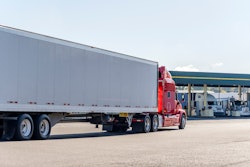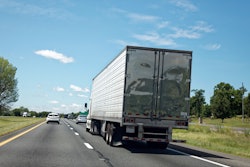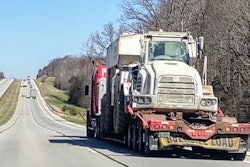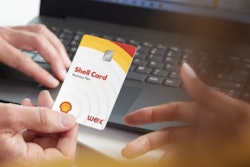With freight fraud on the rise and "carrier vetting" becoming nearly synonymous with "hassle for carriers from brokers," load board Truckstop might have figured out one way to actually simplify the process of landing spot freight and onboarding with brokers.
The company's partnered with Certificial, who works directly with insurance providers to get the correct Certificate of Insurance from the source and provide automatic updates on a carrier’s insurance status. The partnership provides Truckstop with "immediate visibility into the carrier’s insurance information to verify details, ensure an exact match, and establish legitimacy," the company said in a blog post.
[Related: Freight fraud, double brokering skyrocket: What are load boards doing about it?]
How might the change impact owner-operators? Likely, small fleets are already involved, said Truckstop VP of Product Lisa Haubenstock. Truckstop, which also offers the carrier credentials-monitoring system and onboarding system RMIS, "collects insurance information for all active carriers in our system" and "only accepts COIs directly from insurance providers," she said.
"We probably have 95% of all active carrier MCs with insurance in our system," she said. For any given carrier, it's "highly, highly likely that we already have insurance" documentation.

The goal of the Certificial partnership, according to Haubenstock, is "to minimize the amount of time a carrier is in pending status" waiting for their COI to be accepted. In 2024, Truckstop received more than 500,000 Certificates of Insurance (COIs) through Certificial, accounting for 80% of all COIs received that year.
Remember, COIs are an important vector for freight fraud, so carriers should be careful just who gets to see them.
[Related: Safeguard your trucking business’ certificate of insurance to avoid becoming an ID theft victim]
"Insurance information for sure fits into the broader fraud puzzle," said Haubenstock. "It's an angle that bad actors might go to [in efforts to] exploit with falsified COIs. Often that freight is going to be stolen and the broker is left holding the bag."
Certificial provides a tech interface for insurers large and small to quickly communicate up-to-date insurance information to Truckstop's broker clients.
"Highly accurate non-falsified COIs are one of the things that the Certificial partnership provides," Haubenstock said. "Beyond just speed, accuracy is a big part of it -- the information that is in our system is identical to information the insurer has."
Overall, the huge volume of freight touched through the Truckstop load board, as well as the work it does with insurers, puts them in a good position to kick the tires on some of the industry's intentionally bad or simply sloppy actors.
"We work so closely with insurance providers and have strong relationships with them, so when we're suspicious about a carrier, we ask the insurers and compare notes of what’s actually happening," she said.
Often enough, Truckstop tips off insurers about bad carriers, and even flags insurers who seem like they're underwriting a lot of fraudsters, she added.
At once, even with COIs safely communicated from insurers to brokers, what if the broker is a fraudster who then uses the carrier's COI to impersonate them and double broker or steal freight? Haubenstock admitted that there's always a risk in sharing personal information, but said Truckstop does its best to keep the broker customers in check, too.
"Our goal, our mission is to be the most trusted network in freight," she said. "We manage that on both the broker and carrier side. All the customers meet all the qualifications and we're holding ourselves to what we believe to be really rigorous standards." That means there are "absolutely instances where we have received enough information to validate double brokering complaints and will kick people off our products."
How Truckstop uses Certificial, RMIS and Risk Factors to cut down on fraud
The Certificial partnership does not replace RMIS or even Truckstop's fairly new Risk Factors, Truckstop's other offerings in the "carrier compliance" space. (The latter, as previously reported, could eventually serve a "broker vetting" purpose for carriers as well.)
"RMIS is for onboarding and monitoring," said Haubenstock. "It collects basic information, like 'here are my rules that decide what a carrier needs, if they signed my broker-carrier agreement,'" she gave as an example. "With Risk Factors, just because a carrier is qualified doesn’t mean they're the right carrier for any given load. What’s the risk of this carrier? Do we have a digital footprint that means that they have something risky? Has their contact info in FMCSA changed? Is there a complaint in our system of a double brokering?"
All of these overlapping layers of scrutiny get managed and reviewed by Truckstop's Assurance team, which is a "key team that manages our complaints," she said, essentially "helping us figure out when to kick someone off product" after they get information from "both sides" of a dispute.
Haubenstock said the Assurance Team works directly for Truckstop and hasn't been outsourced outside of the country, as some customer-facing teams were last year.
[Related: 'Risk Factors,' a new carrier-vetting tool -- with broker vetting potentially in the works]









